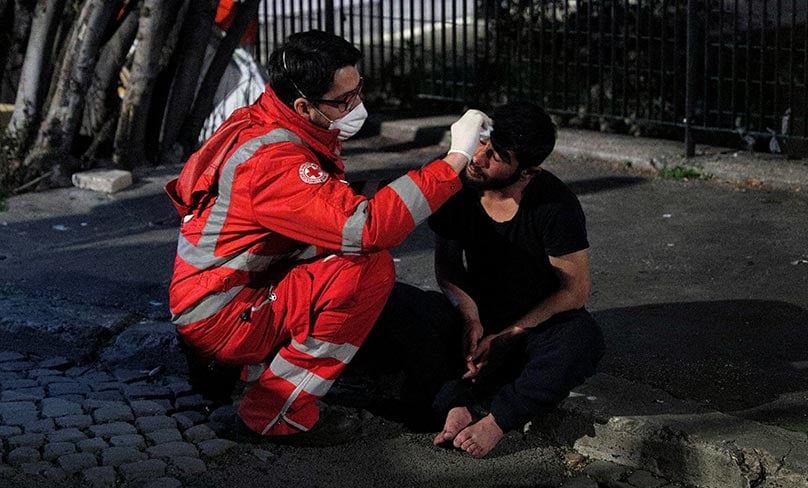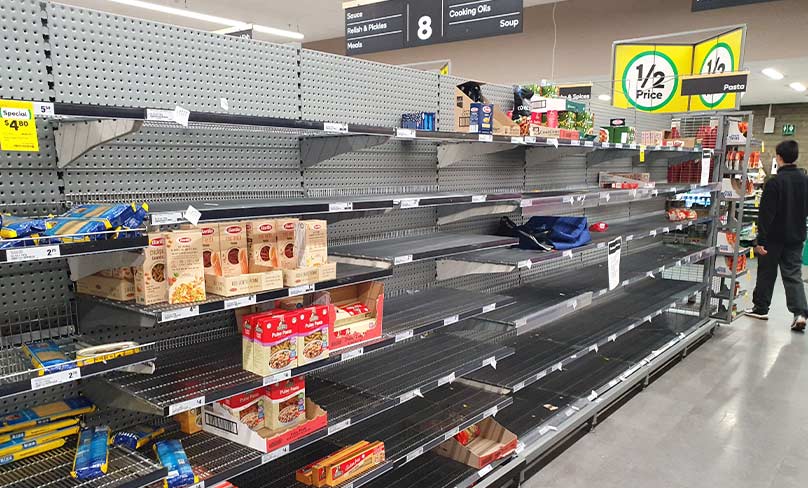
In the wake of the worldwide spread of COVID-19 and the limitations it has placed on human movement and interaction, the ability of Catholics to gather in parishes, for Mass and community, has come under threat.
It is especially in these most extraordinary of times, when “social distancing” and “lock down” have become common refrains, that the significance of community for human flourishing our spiritual life become unmistakeable.
We all have a basic human need for community. It is essential for every other good – for personal relationships, families, the care of our health and the vulnerable, for education in truth, formation in morality, and for the transmission of life itself.
Many in today’s world already crave community. From mothers of young children to seniors, from teenagers and families to new migrants, from people of faith to those who profess no belief at all, we all desire and seek out a sense of belonging and solidarity with others.
Even in a time when self-isolation, supermarket hoarding and incidents of “roll rage” are on the rise, we see also signs of communion and hope.
We hear stories of young people shopping on behalf of the housebound elderly, we’ve seen footage of Italians playing music, singing and applauding emergency workers from their apartment balconies, doctors and nurses selflessly tending to the sick at the risk of their own well-being, and families making the most of this opportunity for time together or reconnecting with loved ones by phone or online.
Churches are streaming liturgies and services online and people are rediscovering ways of praying, taking up spiritual reading and everyday pieties in this most “Lenten” of Lents.

From Congregation to Communion
As Catholics, it’s no coincidence that community is a foundation of our spiritual life and for mission. Our parishes are not merely a venue for the reception of spiritual goods but a true good in itself that nourishes us in holiness, challenging to something far greater than privatised or inward-looking faith.
When we experience the joy of being in Christ together – as a parish or faith community – it deepens our commitment to evangelisation, to sharing the joy of belonging in Christ with others.
Indeed, the Gospel is obsessed with the idea of the unity of human society. In his farewell discourse, Jesus prays “that [we] may all be one” (John 17:21).
This common life for Jesus is not a mere aggregation of individuals but a true communion marked by charity: “By this everyone will know that you are my disciples, if you have love for one another” (John 13:35).
In Christ as one body, the disciples are called by Jesus to be united as ambassadors for justice and reconciliation, in communion with one another as witnesses of healing and hope, and of one mind and heart as preachers of God’s mercy and love in the midst of a scattered and divided world.
As such, our Catholic faith places a strong emphasis on communion in worship, beliefs and Christian action, on the communion of saints that is the Church on earth and in heaven, and on the spiritual, human, pastoral and intellectual benefits of doing things together.
But how do we maintain this Catholic sense of identity and mission when we are no longer able to gather as we once did?
Are there opportunities for spiritual growth in this seemingly barren time, when isolation and distance seem to be the order of the day?

A Light in Darkness
As churches close and the public celebration of Mass is suspended, we come into the presence of an absence that can shake us from deadening complacency.
In these days, more than others, we notice what is no longer immediately accessible to us and become more present to what is given but not always fully received. Like eager anticipation of a friend yet to arrive, this experience of the other is keenly present to us even though absent.
We feel a spiritual hunger that draws us closer to the source of our fulfilment, as then-theologian Joseph Ratzinger affirmed: “A fasting of this kind could lead to a deepening relationship with the Lord in the sacrament. It could be an act of solidarity with all those who yearn for the sacrament but cannot receive it. Sometimes we need hunger… to come fresh to the Lord’s gifts”.
Preferable to a routine of church attendance and reception of the Eucharist which lacks love or reverence, or as Ratzinger puts it, “does not do justice to the immense significance of what is taking place”, we learn again and appreciate anew the gift of God’s self in his sacramental presence.
As our Lenten practices instil, it is by our fasting and self-emptying that we are prepared to taste and be filled with the goodness of the Lord.
Our local parishes remain key sources of spiritual nourishment at this time by fostering a continuing sense of belonging, empowering action in common, nurturing values and a common life of prayer, and forming and building connections among the faithful through a variety of means.
Just as parishes attract Catholics and visitors from well outside their geographic boundaries, so can parishes in this moment nourish the spiritual searching and itineraries of a whole host of people online and provide an anchor of meaning and society in uncertain times.
Many parishes are already live-streaming the private celebration of Mass or times of Adoration around which people gather online.
Parish emails with prayers and spiritual reading can be sent to community members and groups, marking Feast Days with intentions focused on urgent needs and God’s provision.
Priests can post or record encouraging reflections on the Gospel or readings of the day, guide their people through the Stations of the Cross, share podcasts on themes of faith and life, and connect parishioners’ needs with others with supply in the community.
Intercessory prayer groups can pray at common times, coordinating themselves by email, phone or social media.
The Rosary and Angelus can be prayed in common, connecting us with the universal church and establishing a common rhythm of spiritual life in the home.
Online bible studies can take place through mediums such as Google Classroom while pastoral care can be coordinated by parishes through online conversation, especially as the situation of elderly Catholics in nursing homes, hospitals and other institutions develops through time.
Parish food pantries and online ordering and delivering systems can be established in community or by parishioners supporting not only Catholics but anyone who finds themselves in need.
Prayer cards or pastoral messages can be left in shopping bags delivered to the elderly or isolated as an encouragement and a gentle way of evangelisation.
Our communities are awash with the charisms of dedicated priests and people who together in Christ form the parish as a centre of pastoral care and evangelisation.
These challenging times are a call to renew our spiritual life through methods both ancient and new, by creative expressions of Catholic life as the sign and reality of Christ’s continued presence in the midst of an aching world.

